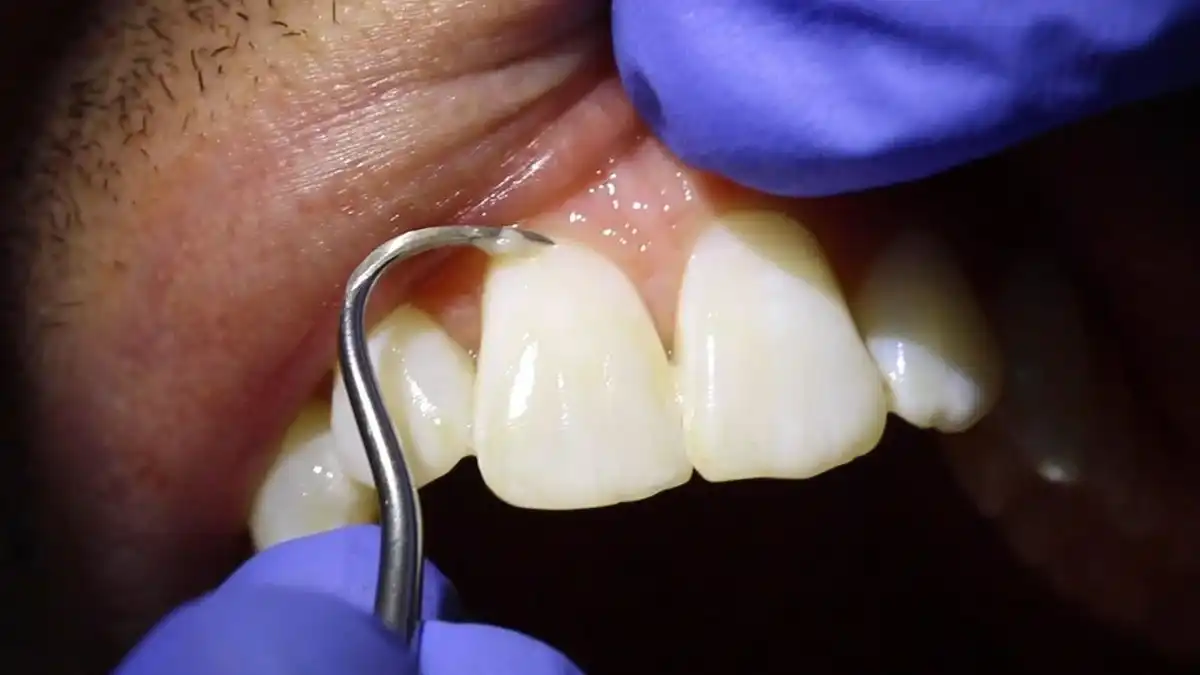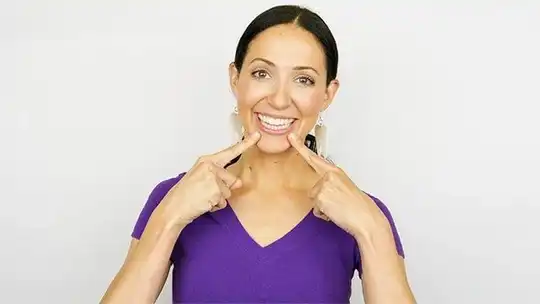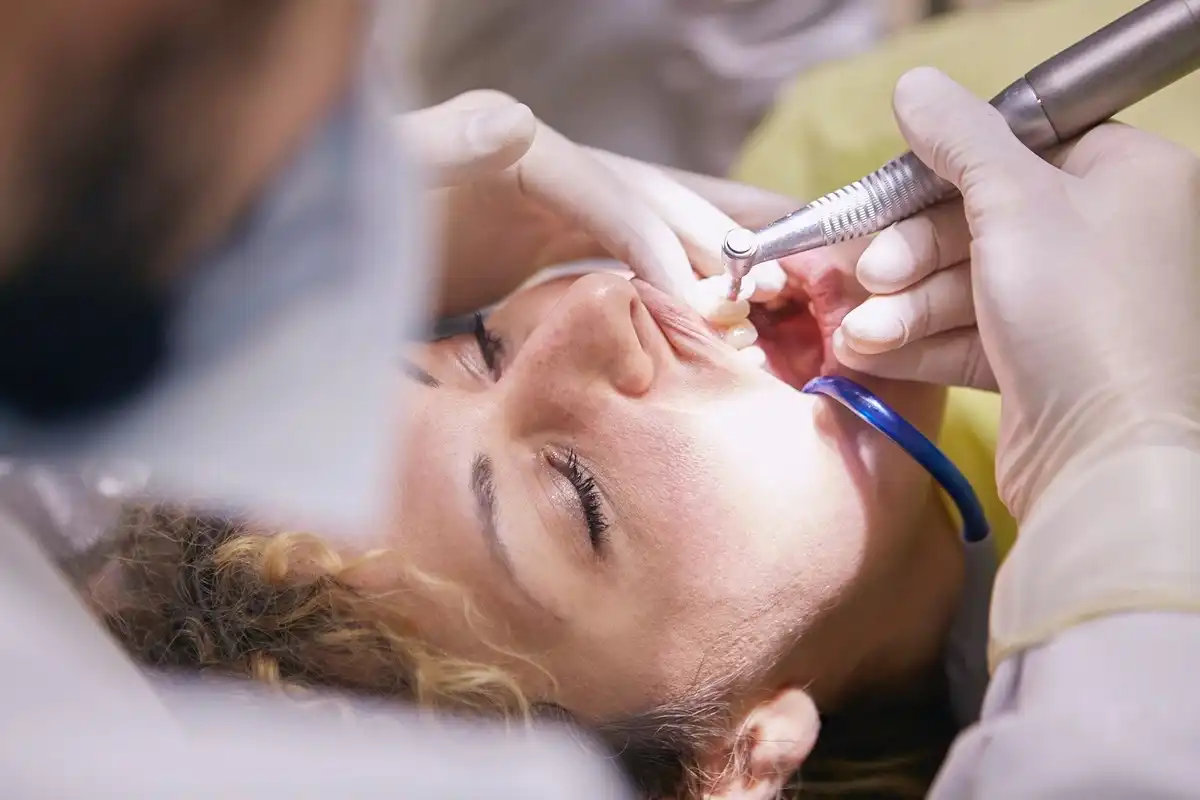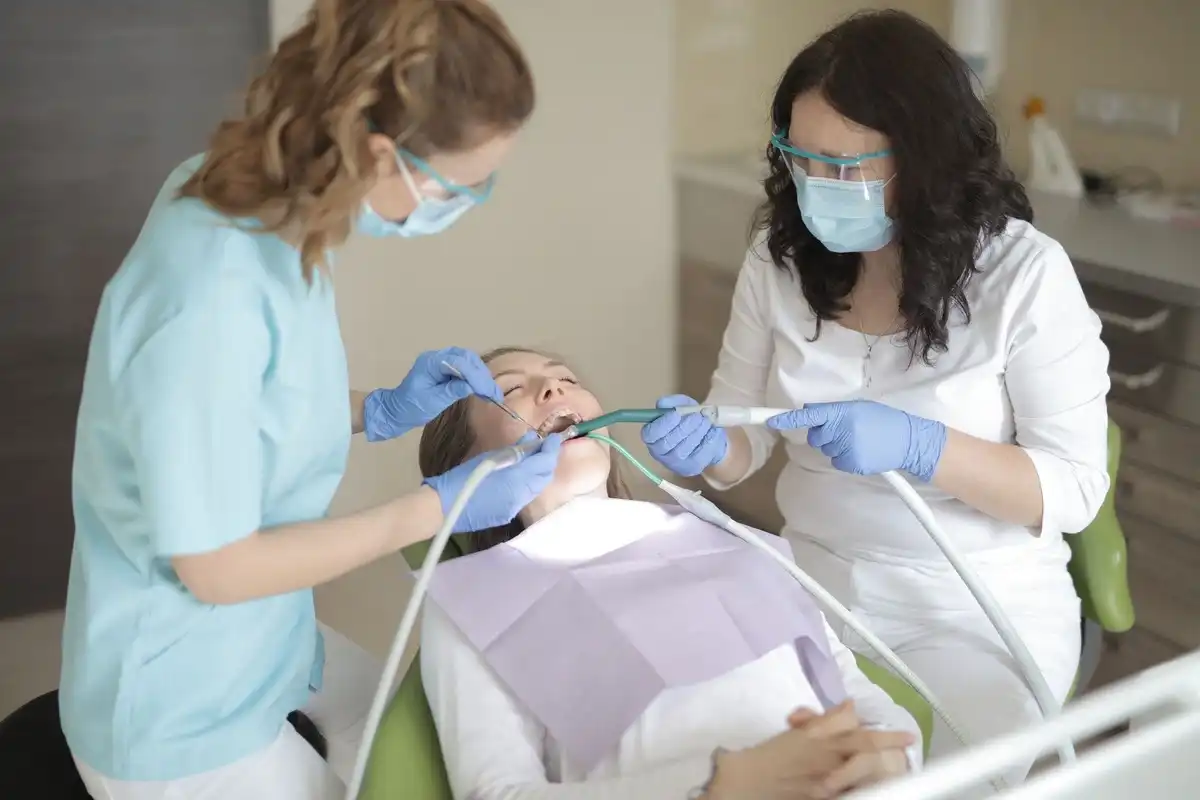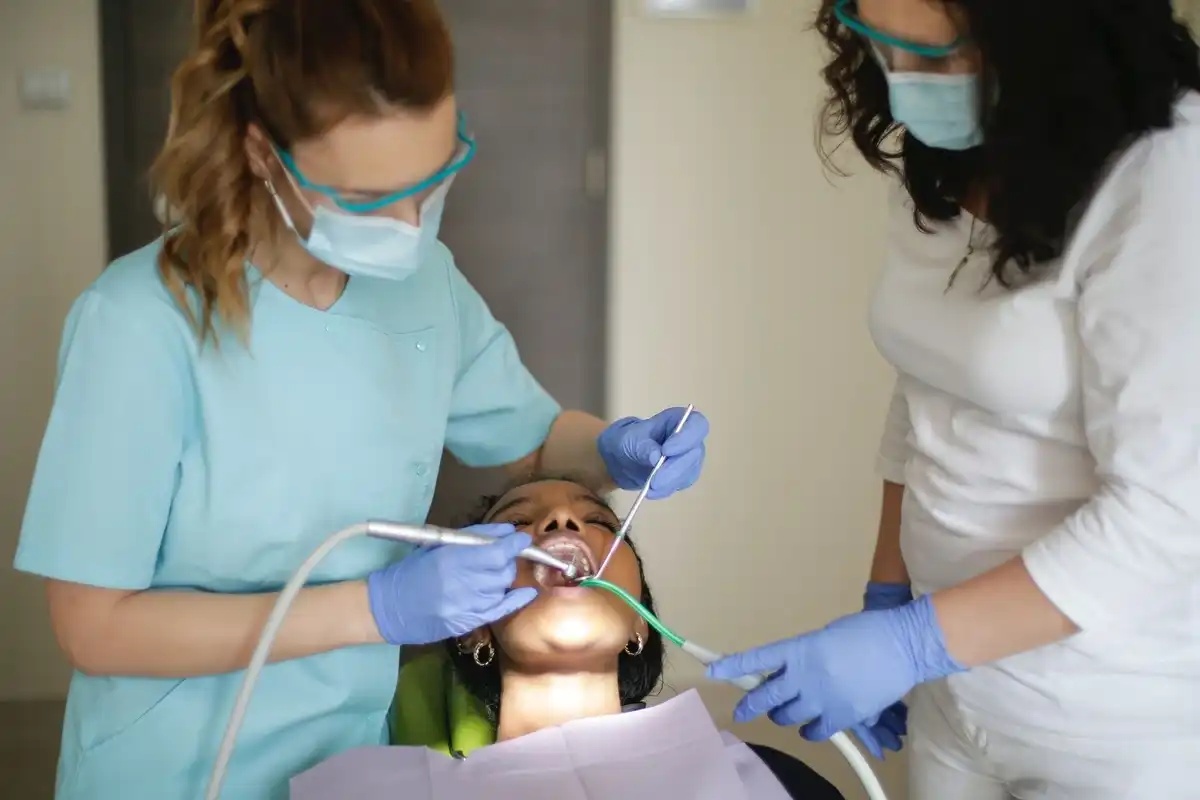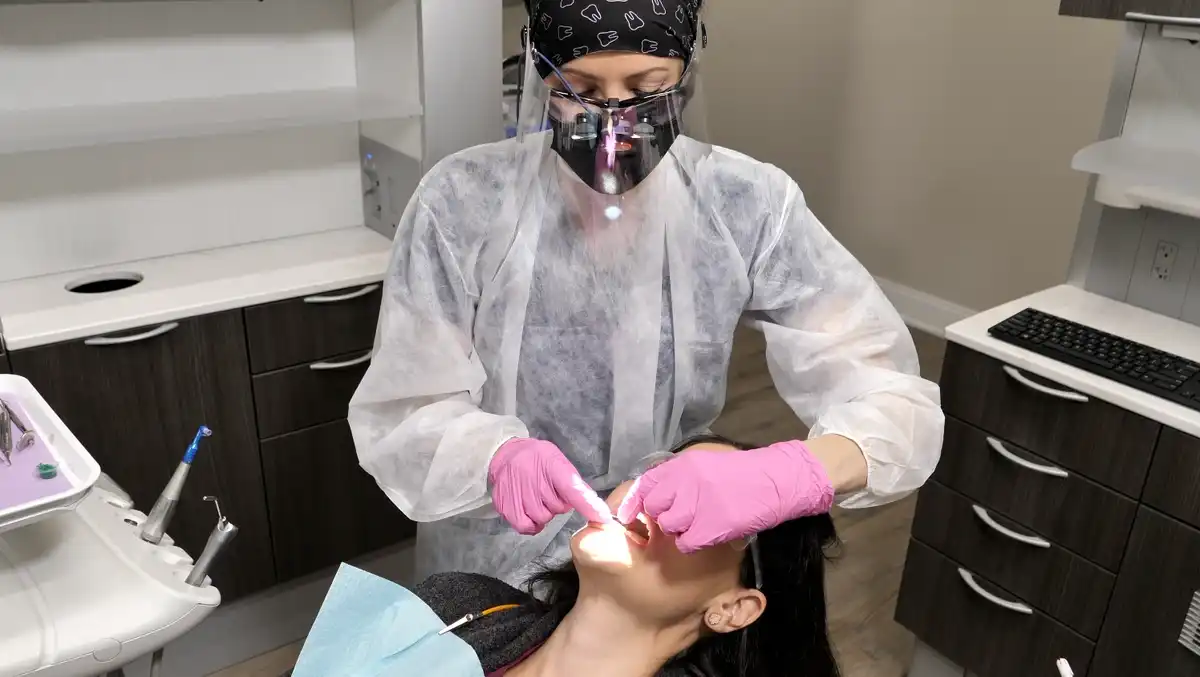Dental Hygiene Interview Questions | RDH Interview Tips


Right now is a great time to be searching for a job as a dental hygienist. Whether you’re fresh out of dental hygiene school, looking to pick up a part-time gig now that the kids are a little older, or it’s just time for a change in your full-time career, there are a lot of opportunities out there. As you’re beginning your job hunt, you’ll want to have RDH job interview questions for the office just as much as they do for you.

Dental Hygienist Interview Tips
One of the fairly common things we’ve seen in the dental management community is an increase in “ghosting.” AKA people not showing up for interviews or never returning phone calls. So first and foremost: communicate. If they call you, call back. If they want to interview you, show up.
The most important parts of your interview are to be on time, dress the part, and have RDH job interview questions lined up for the dentist and/or manager about the practice. To be on time is to be late and to be early is to be on time. Walk through their door at least 15 minutes early.
While you wait, review your list of questions, prep answers, and look around the practice; don’t spend time on your phone (make sure it’s on silent.) Reread the job description in case there is something specific they are looking for. Employers are looking for interpersonal skills from the moment you meet them, so make a good first impression. And most importantly: make sure you’re well-groomed from head to toe, and dressed in at least business casual if not business formal attire. That’s right: not scrubs. Save that for the working interview.
Come With Questions
Having a list of RDH job interview questions will help you get the information you need, without forgetting to ask about them. Plus, asking questions shows that you’ve genuinely thought through the hiring process and what it would mean to become a part of their practice. This process is just as much about you interviewing them as a potential employer and work environment as it is them interviewing you for a job. It’s a two-way street! And in a market like what we’re in today, the ball is in your court.
Well thought out questions ensure you’re able to feel confident about making a decision about your new job. But it also provides the dentist or hiring manager with some insight as to your scope of care, work ethic, etc. You want to be able to have a great job not just for a source of income, but also to hold the same values as you do for their patients.
What To Look For In An Dental Office
As you start looking for a new RDH job, everyone has different priorities. But some of the common factors you’ll want to consider are:
- How far of a commute the office is from your residence
- The scheduled office hours (such as evenings or weekends)
- Cleanliness both in and outside of the building
- Technology utilized within the practice, including investments they’ve made or plan to make
- A staff that’s happy to be there and friendly to one another, with limited turnover
- Scheduling practices—such as appointment length—in the hygiene department and if they fit your needs
Although optional, it can be helpful to look for offices that provide complimentary continuing education resources, CPR training and uniform allowances to their staff.
As hygiene positions have begun to shift to more full-time vs. part-time positions, a lot of dental practices are beginning to offer dental hygienists things like paid vacation, sick days, retirement, etc. Keep these factors in mind when it comes to negotiating your salary!
12 Dental Hygienist Interview Questions To Ask
While RDH job interview questions will always vary from one dental hygienist to the next, here are some of the most important ones you’ll want to ask. It doesn’t hurt to have them typed out and on hand (along with your extra resume). You may find that several of them are naturally explained as part of the typical back-and-forth conversing during your meeting.
1. How are the hygiene appointments scheduled for new patients, SCRPs, and recalls?
If you’re a dental hygienist, you know that time matters. Does the office provide ample time to perform all of the job duties you’re responsible for? If a new patient appointment requires an FMX, full mouth probe, exam, and a prophylaxis, you need to know you’ll have the time to do it properly.
2. How long have most of your staff been here?
A high staff turnover can be a tell-tale sign of bad management. On the other hand, long-time staff retention is a great way to get a read on job satisfaction and harmony within the practice. When in doubt, always listen to your gut.
3. What type of annual training do you offer to the full/part-time staff? (Depending on which one applies to you.)
This is a great question because it covers everything from CPR and HIPAA to your required CEUs each year. Maybe they take everyone to a dental convention or host a lunch and learn every month. Most RDH jobs do include CEU training as a “perk”, but part-time positions may not. Be sure to find out whether any training is mandatory for part-time staff and if it is, if it’s conducted on days that fall within your normal work schedule.
These next two go together:
4. Does the practice have any plans for growth, such as changes in their operating hours or adding an associate?
AND
5. Why are you looking for a new dental hygienist at this time?
Understanding why the office is hiring a new dental hygienist is vital to your short and long-term job satisfaction. Is the old RDH retiring? Are they simply adding an op to make up for practice growth? Or is there something bigger to consider: like a new dentist coming in or something that might catch you off guard? You might love the current doctor, but if they’re hiring a new associate or merging with another practice, you’ll want to consider how the other dentist fits into your overall “vision”.
The following important questions are best asked to the current dental hygienist, if you’re able to speak to them:
6. What type of instruments and equipment do you use?
We all know that worn-out scalers can only do so much. An office that’s well-equipped with the right hygiene equipment will help you do a better job without excessive physical strain. Be sure to check out everything from the ultrasonic to the hand scalers and any imaging equipment.
7. Do you find that you’re able to stay on schedule for the most part?
Some offices are notorious for running behind. Especially if they’re high volume or have shorter appointment times. If they have an assisted hygiene program, they might not. While you’re on the topic, try to find out about what time the dental hygienist leaves each day to go home. This can help you realistically decide as to whether you can meet other commitments.
8. What’s the process of having the dentist step in for an exam?
Does the dentist come in when they have a stopping point in their current procedure, or do they wait until you’re completely finished with what you’re doing?
9. How does the dentist prefer for you to share your findings with him/her?
Every dentist is different. Some want a post-it note with what you’ve found during the prophy, others don’t mind. Some even prefer that you prep the patient for a suspected treatment need before they step into the room. As you find the right balance for that particular dentist, it will help to find your “fit” into the office’s patient care routine.
10. Can I get a quick tour of the practice?
As you’re walking through the office, look for things such as cleanliness, organization in the sterilization area, equipment that’s on hand, and observe the interactions between the staff and patients. Are people stressed and short-tempered, or pleasant and happy?
11. What happens if there’s an emergency and the dentist or the dental hygienist can’t make it to work - do you get a temp, reschedule patients, or what happens in those rare situations?
Life happens. If you wake up with a stomach bug one day, will it be your job to call in a temp dental hygienist or does the office prefer to reschedule all of your patients? At the same time, a lot of offices close when the dentist goes out of town on vacation. You might prefer to continue working and seeing established patients or temping that week if you know ahead of time.
And finally, before you accept any job offer:
12. Can we schedule a working interview? I’d just really like to see how we can fit together and be sure we’re all on the same page.
It’s not a “bad” thing to get hired on the spot. But if you have options and want to make sure this is a smart long-term move in your career, ask for the working interview. That means showing up a separate day in scrubs, seeing patients, and getting a first-hand view of all of the ins and outs of how the office flows.
Prepare For These 8 Dental Hygiene Interview Questions
If it’s been a while since you’ve been interviewed for a job, you’ll want to do some prep-work too. Here are some of the most common RDH job interview questions you can expect to be asked, and some example answers(or at least ideas on how to reply) to get you started!
1. Tell me about yourself.
Example response:
I graduated from hygiene school in 2012 and relocated to this area last month. I really enjoy going to museums and in my free time I try to keep up with my container garden.
Give them something personal to connect with, but don’t get too personal. Side note: it’s illegal for prospective employers to ask about certain private family or personal details, including your age. You don’t have to volunteer information such as having three kids or that you’re a caregiver for a parent.
2. Why are you looking for a new hygiene position?
Example response:
I relocated to this area and the commute was too far to my old office. Or, my previous doctor was retiring and selling the practice, etc.
3. What did you like or not like about your last job?
Example response:
I really enjoyed everyone’s company both in and outside of work. Most of us worked there for a long time and I consider them to be very good friends.
4. Where do you see yourself in 5 years?
Example response:
I’m hoping to still be practicing hygiene and by that point have a long-term relationship with a lot of my patients. Or, I hope to continue working part-time until I retire, etc.
5. How long does it take you to complete a prophy?
Example response:
If it’s a typical recall patient who is coming in every six months, I feel like ___ minutes is a good time block. If it’s a new patient and I’m completing both an FMX and a full mouth probe in addition to a prophy, I prefer to have ___.
6. Are you up to date on your OSHA, CPR, and HIPAA training?
Example response:
I typically take those training courses with the office that I’m working with. I’m currently up to date since we had our last training on ____. Is that something you do here as a team?
7. Which software programs have you worked with?
Example response:
Don’t fake your way through this one. Be honest about which systems you’ve worked with, what you’ve done on each, and how long it’s been since you’ve used them. Being up front about an expected learning curve is completely fine.
8. What is your greatest weakness?
Example response:
I tend to be a bit of a perfectionist, or, I have to always watch the clock because I tend to get caught up in scaling, etc. This doesn’t have to be a negative, so long as you add a positive twist in there to cover yourself.
GET THAT DENTAL HYGIENE JOB!

Hunting for a dental hygiene job? Don’t feel bad about having RDH job interview questions of your own. Being invested in the interview process is rewarding for both parties alike. Asking the right questions can help you feel confident choosing the best place of employment as you embark on the next chapter in your RDH career. At the same time, you want to know what type of questions to expect. Remember, you’re interviewing them as a potential employer just as much as they are you an employee. Have the right questions on hand, show up on time, always respond to calls/emails, and dress the part. The rest is smooth sailing!

Make your inbox smile!
Subscribe
